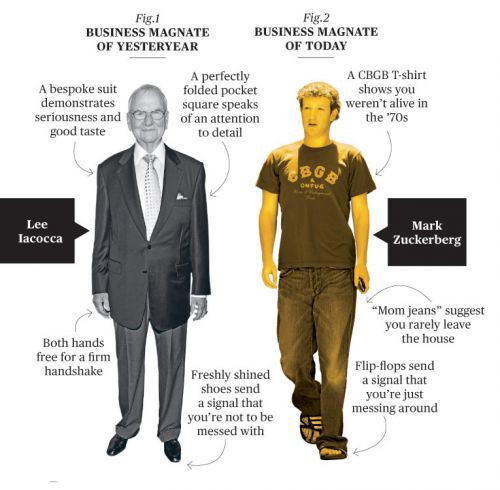Workplace Evolution: The Envisioners

Hiya!
What keeps me running (going for a jog, it is) and learning in this fast-paced world? Podcasts! I’m #obsessed.
Few days ago I came across Dave Coplin blog The Envisioners. Dave is a Chief Envisioning Officer (yep, that’s a thing) for Microsoft UK, helping organisations and individuals envision the full potential that technology offers a modern, digital society.
Below is the overview of Millennial Worker podcast. The funny thing? This podcast was recorded in 2009, 6 years ago, but is still surprisingly relevant.
In this podcast Dave is joined by Robin Cavonious and Jonathan Peach, who have worked on a research around the workplace evolution, impact and challenges that the Millennial generation will bring to the workforce.
Sit back and enjoy…
How do you classify different generations?
Baby-Boomers
Jonathan Peach: Baby-Boomers generation is born between the 1946 and 1964. There are 14,000,000 Baby Boomers in the UK workforce today (2009 stats).
Baby-Boomers were shaped by the 2nd World War, that lead way to new ideas and new industries.
Baby Boomers experienced an unprecedented level of economic growth and prosperity throughout their lifetime. Thanks to technological advancements they have emerged as a successful and affluent generation.
Generation X
Then we’ve got the Generation X ‘s, born from 1960’s to 1980’s.
There are 11,000,000 of them in the UK workforce (2009).
Gen X is slightly smaller generation than the Baby-Boomers.
They grew up through the birth of MTV and the punk age.
Generation Y aka Millennials
And then we’ve got the Millennials, 8,000,000 in the UK workforce (stats from 2009). This is the latest generation in the workforce.
There’s a lot of different ways of defining Millennials, but we’ve been trying to showcase the most prominent characteristic – which is that Millennials are digital natives and this is what actually distinguish this generation from the other generations.
They’ve been born into a society, where technology is pervasive and it’s just natural to them, it’s been there since they were born and that’s had huge implications on their attitudes to life and work and if you look at the way they socialize – it’s usually different from the older generation.
A lot of Baby-Boomers and Generation X’s say that being technologically savvy is natural to them as well. But an example I always like to give is this:
Robin Cavonious: “I’ve lived in Britain for 6 years, but I am Swedish. My English is pretty good and people wouldn’t know that I’m actually foreigner.
Although, I can speak English, it’s not natural to me, because I think in Swedish and translate words in my mind into English, so it’s not natural to me.
And so my point here is that even if non-digital natives claim that technology is just as natural extension to what they do, it is not, because they come from a world where technology didn’t exist in the same kind of way.”
“It’s not a threat ,not a novelty – it just is” – this quote sums it up really well what technology means to Millennials.
What are the challenges that most organizations face in trying to understand the needs of Millennials?
The biggest challenge is figuring out and providing business solutions that harness agile approach that technology brings.
But technology itself doesn’t drive change, people do! It’s how you manage the cultural change of the people.
For example, if a company decides to deploy blogging (because they have a lot of young people) but they don’t have the culture that supports blogging, then it wouldn’t work.
It’s not the “Millennial problem”, it’s an entirely new social system
We live in the world, where being digital natives is pervasive to everyone.
If my dad was going to have to find a new job, he’d be expected to use a laptop, a printer, and all that sort of stuff.
But I think, the difference is that he would have to adapt to that every time, he’d be worried about these changes.
This generation (Millennials) and the younger generation (Gen Z) they’re kind of excited about the changes. If they’re told that in 10 years they’ll be flying cars, they’ll be totally excited. It’s just the way they are.
Being agile multi-tasker, productive, collaborate, communicative, technically adept and prepared for changes, are not just Millennial qualities. These are the qualities businesses look for in every employee.
Social businesses: what does this mean?
Jonathan Peach: For example, the architecture or model of Facebook is really intelligent, and we’re not talking about social networking in the sense of being social and leaving comments about drunken nights. We’re talking about how you can share information in an intelligent way, in a social way.
Let’s say you log onto the site and you know I’m a lawyer and I’m working on a case about divorce, the next time you logon, you see all the other people, who have worked on similar cases that may be relevant to your work.
One of the reasons I came up with this example in the legal sector, is because legal sector have a problem with masses of storage being used, massive storage is money; and duplicated work is the the loss of productivity.
Now, how could you consolidate all that information in an intelligent way that’s useful to everyone?
Don’t look at Facebook as just a means to talk about these informal things, look at the architecture and try to think how can you put it into a business context?
This is about taking some of the principles, the functional elements that make Facebook successful and using them in your own internal applications or processes.
I made a report recently in Ghana and they stated that by 2010 end-user preferences will decide as much as of all IT buying decisions and that’s a huge statistic.
70% said they’ll be having interface with customers, so they will be able to connect to customers using Facebook type of applications, which means they can have a more personal and interactive connection with their customers.
They’ll be able to put an email address to a face. It becomes more of a partnership, because you know much more about your customers.
It might be the case that you’re culturally not there yet, but at least it’s worth thinking about it.
How the hell are Baby-boomers going to pass on that wealth of experience and information onto Millennial generation?
The best answer to this is the “Generational Blend” approach. This means that every generation brings different skills to the table: Baby-Boomers bring experience and tricks of the trade that Millennials desperately need to make better decisions; and Millennials bring technology and agility.
There is so much that this generation need to learn in the next 10 years; it’s imperative because otherwise it could be a lost plane, and businesses could crash land.
But how we can share (pass on) that information?
At the moment there’re so many opportunities and so many ways we can do this but no one seems to be grasping those ideas yet and Wikipedia won’t be the resource that’s going to save everyone.
What’s the one piece of advice that you would give to employers?
Be open to change. Don’t just consider Millennials as subordinates, as grads or interns. Look at them as the future of your business. They will be in your chairs in the next 10 years and it’s about getting them prepared.
If you can come up with a strategy to think about your business in the next 10 years and think about how you’re going to accommodate for the next generation, then you’re in a good position.
People will drive this economy, people will drive businesses forward. It won’t be technology or cutting costs.

